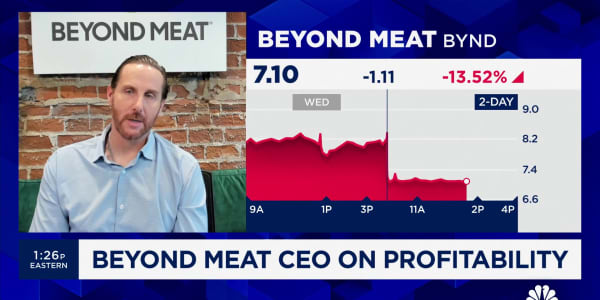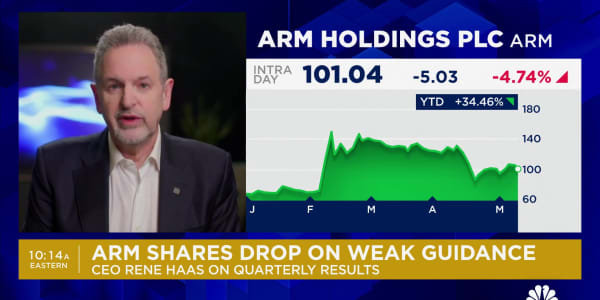The New York Times points out a study that seems to demonstrate that some people are willing to work too hard and earn too much.
The study isn't that new. It was published in the journal Psychological Science in June. But its findings are quite remarkable. It shows, according to the Times, that people have a "deeply rooted instinct to earn more than can possibly be consumed, even when this imbalance makes us unhappy."
From the Times:
To explore the powerful lure of material accumulation, the researchers constructed an experiment in two phases. In the first phase, subjects sat for five minutes in front of a computer wearing a headset, and had the choice of listening to pleasant music or to obnoxious-sounding white noise.
They were told they could earn pieces of Dove chocolate when they listened to the white noise a certain number of times. Some participants had to listen fewer times to get each piece of chocolate, making them "high earners"; some had to listen more times, making them "low earners."
All were told that there would be a second phase to the experiment, also lasting five minutes, in which they could eat the chocolate they earned. But they were told they would forfeit any chocolate they couldn't consume, and they were asked how much they expected to be able to eat.
On average, people in the high-earner group predicted that they could consume 3.75 chocolates.
But when it came time to "earn" chocolates, they accumulated well beyond their estimate. On average, they listened to enough white noise to earn 10.74 chocolates. Then they actually ate less than half of that amount.
In other words, they subjected themselves to harsh noise to earn more than they could consume, or predicted they could consume.
That may not seem like such a big problem. In a society plagued by debts, unemployment, and stagnant wages, it seems almost decadent to worry about the problem of over-earning. But it actually has deep economic implications.
If the interpretation of the behavior of the subjects is correct—and, as we'll see in a moment, that's questionable—then the authors have uncovered something that challenges a lot of contemporary economic assumptions.
One of the basic assumptions of most economics is that people desire income for consumption. That is, they don't just want to accumulate income. They want the things that they can purchase with income. Even savings is characterized as "delayed consumption."
But the subjects in this study appear to desire chocolate income even though they do not plan to consume it and have been told they cannot save it. They apparently want to earn more of it just for the sake of earning more. Even when the savings will be taxed at 100 percent, they're still earning.
If you are a Keynesian focused on the demand side of economics, this might look like an indication that the problem of "demand leakage" is even bigger than previously imagined.
(Read more: Minimum wage debate 'insane': O'Leary)
The high-earner chocolate workers are piling up income they cannot possibly consume. In an economy with trade, this might indicate that they have a very deep-set saving desire that exceeds any rational sense of their needs. In such a society, demand will fall short of that necessary for a healthy economy.
Looked at from the supply-side, however, things are much better. The activity of listening to white-noise produced chocolate into the lab-room economy that didn't exist. The earners showed a willingness to keep producing in excess of their own needs. What we're seeing here is the basic psychological underpinnings of wealth generation and long-term prosperity.
This brings us to the two reasons to doubt that the test is really demonstrating what it's authors call "mindless accumulation."
(Read more: The politics of the famous marshmallow test)
First, the scholars miss the uncertainty driven risk-mitigation that seems to be going on. Prior to the test, high-earners thought they'd consume 3.75 chocolates. After the test, they consumed more than 5 chocolates. This means that they initially underestimated their chocolate consumption.
A rational person who understands that he may be underestimating his chocolate consumption will earn more than he expects to consume, a chocolate buffer. Especially when the cost is quite minimal—listening to annoying noise—it makes sense to accumulate excess. The high earners are avoiding the risk of having a chocolate shortage.
Second, and perhaps more importantly, the test conditions are so artificial that the study may be largely irrelevant to the real world.
In reality, we tend not to be forced into the choice of immediate consumption of all the production we accumulated ourselves. We can save our wealth, we can invest it and we can trade our products for those produced by others. Like risk-mitigation strategy, these are strategies that pay off in the real world. People who follow them tend to prosper, while those who refuse to engage in "mindless accumulation" do not.
In other words, the study may just demonstrate that rational behavior sometimes looks silly in a psychologist's lab.
—By CNBC's John Carney. Follow him on Twitter @Carney






